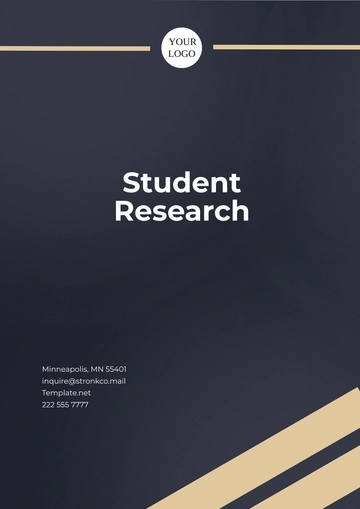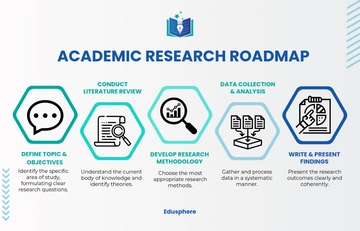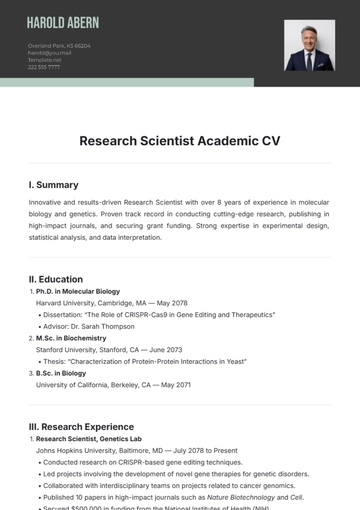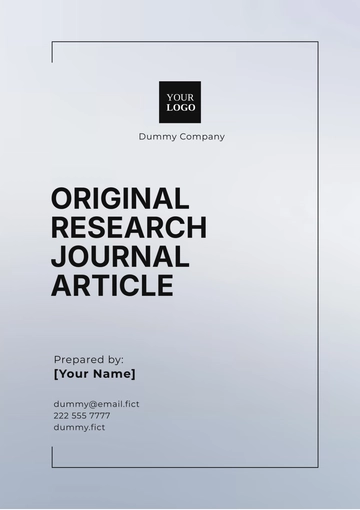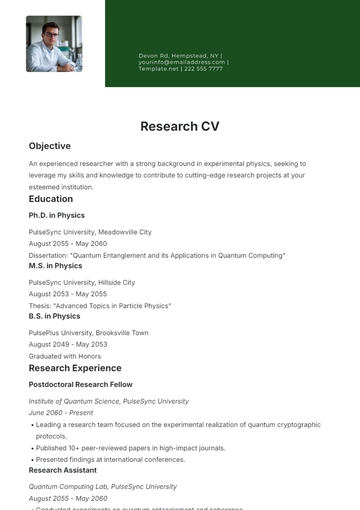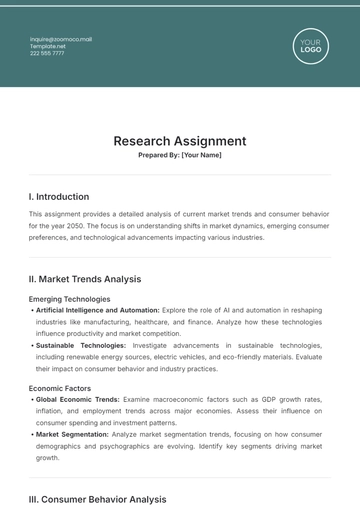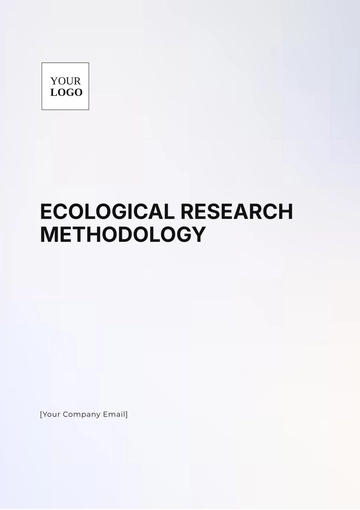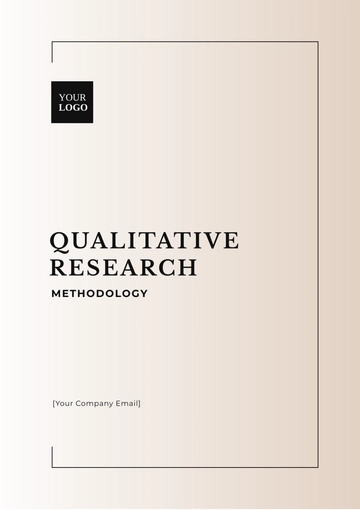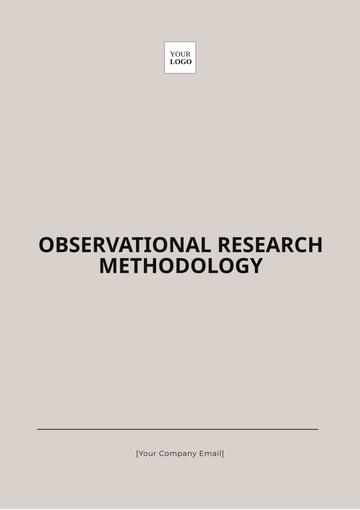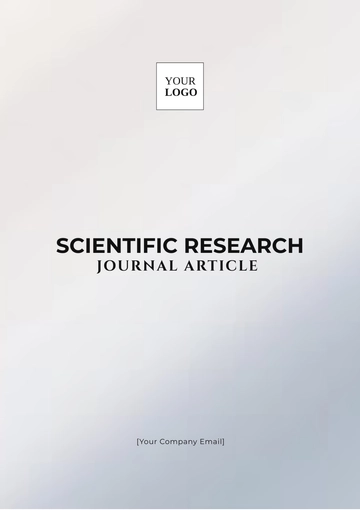Free Scientific Research Problem
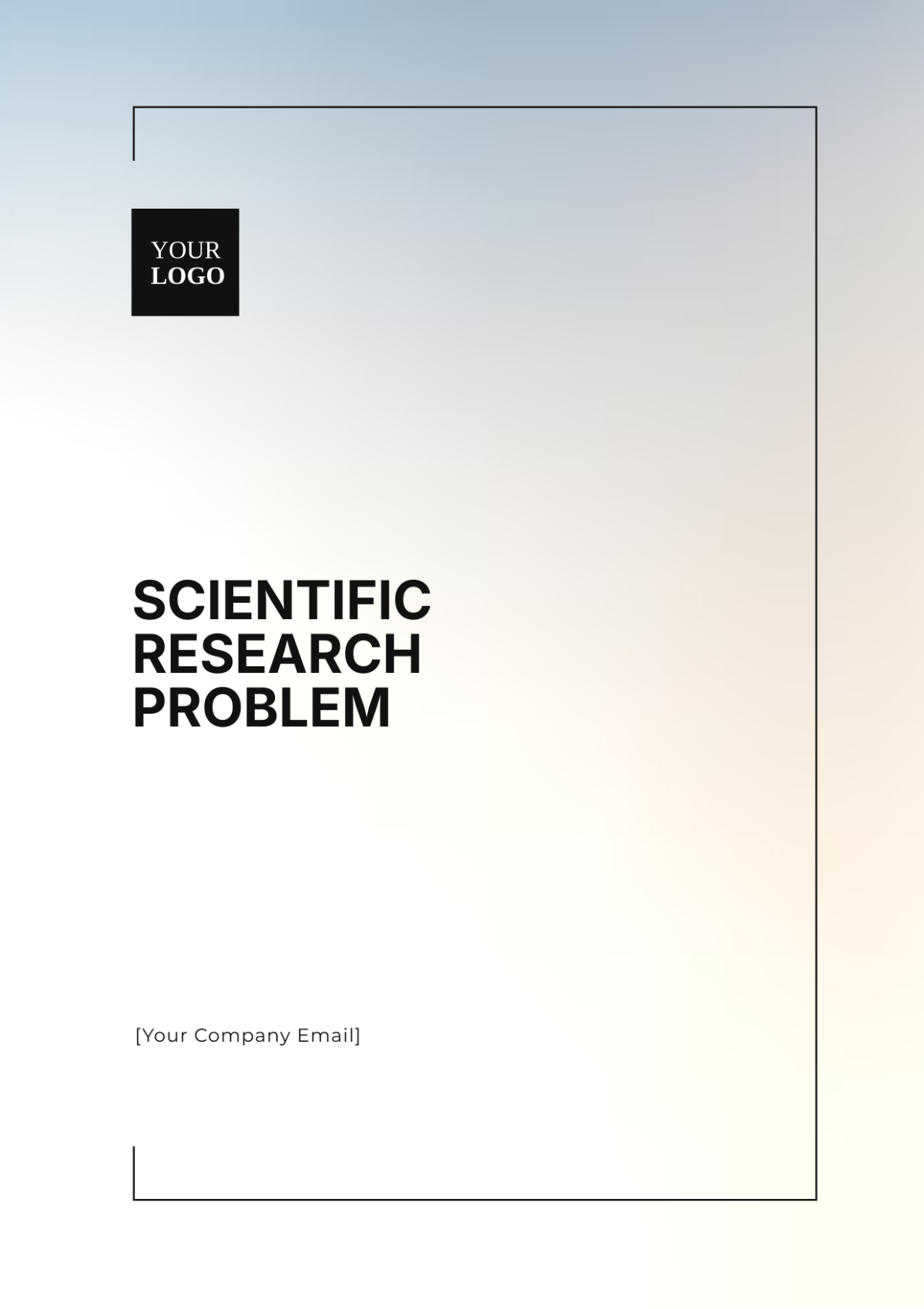
Prepared by: [Your Name]
Date: [Date]
1. Introduction
As global environmental challenges intensify, there is an urgent need to develop innovative solutions for sustainability. One critical area of concern is the impact of industrial activities on natural ecosystems. This research aims to explore advanced technologies and strategies for mitigating environmental degradation and promoting sustainable practices in various industries.
2. Problem Statement
The central problem addressed in this research is the insufficient effectiveness of current technologies and practices in mitigating the environmental impacts of industrial activities. Despite various efforts, many industries continue to contribute to pollution, resource depletion, and habitat destruction. This research seeks to identify and evaluate new approaches and technologies that can enhance sustainability and reduce ecological footprints.
3. Objectives
To assess the limitations of current environmental technologies and practices used in industrial settings.
To develop and propose innovative solutions for improving sustainability and reducing environmental impact.
To evaluate the effectiveness of these solutions through experimental and field-based studies.
To provide recommendations for policy and industry practices based on research findings.
4. Research Questions or Hypotheses
What are the primary shortcomings of existing technologies and practices in addressing industrial environmental impacts?
How can new technologies or methods improve sustainability in industrial operations?
What are the measurable benefits of implementing these innovative solutions in terms of environmental impact reduction?
How can policy and industry practices be adapted to support the adoption of more sustainable practices?
5. Literature Review
Recent studies have highlighted the ongoing challenges in reducing the environmental footprint of industrial activities, including inefficiencies in waste management and resource utilization (Martin et al., 2050; Zhang & Liu, 2051). Advances in green technologies and sustainable practices have shown promise but often face barriers to widespread adoption (Anderson & Clark, 2052). This research will build on these findings by proposing and testing novel approaches to enhance industrial sustainability and minimize environmental harm.
6. Significance of the Study
Addressing environmental challenges and promoting sustainability are critical for the long-term health of our planet. The research findings could lead to the development of more effective technologies and practices that reduce industrial pollution, conserve resources, and protect ecosystems. These advancements will be crucial for meeting global sustainability goals and ensuring a healthier environment for future generations.
7. Methodology
Research Design: A combination of laboratory experiments and field studies to test and evaluate new sustainability technologies and practices.
Data Collection: Collection of data on environmental impact metrics, including emissions, waste production, and resource usage from various industrial settings.
Analysis Methods: Comparative analysis of existing and new technologies, statistical evaluation of environmental benefits, and assessment of practical implementation challenges.
8. References
Martin, S., Evans, P., & Roberts, L. (2050). Technological Advances in Environmental Sustainability: A Review. Environmental Science & Technology.
Zhang, Y., & Liu, J. (2051). Challenges in Industrial Pollution Reduction. Journal of Industrial Ecology.
Anderson, R., & Clark, E. (2052). Innovations in Green Technology and Their Adoption Barriers. Sustainable Development Studies.
- 100% Customizable, free editor
- Access 1 Million+ Templates, photo’s & graphics
- Download or share as a template
- Click and replace photos, graphics, text, backgrounds
- Resize, crop, AI write & more
- Access advanced editor
Introducing the Scientific Research Problem Template from Template.net. This fully editable and customizable template is perfect for researchers looking to streamline their work. Easily tailored to your needs, it’s editable in our AI Editor Tool, ensuring a personalized touch for every project. Simplify your research process with this versatile tool today!







